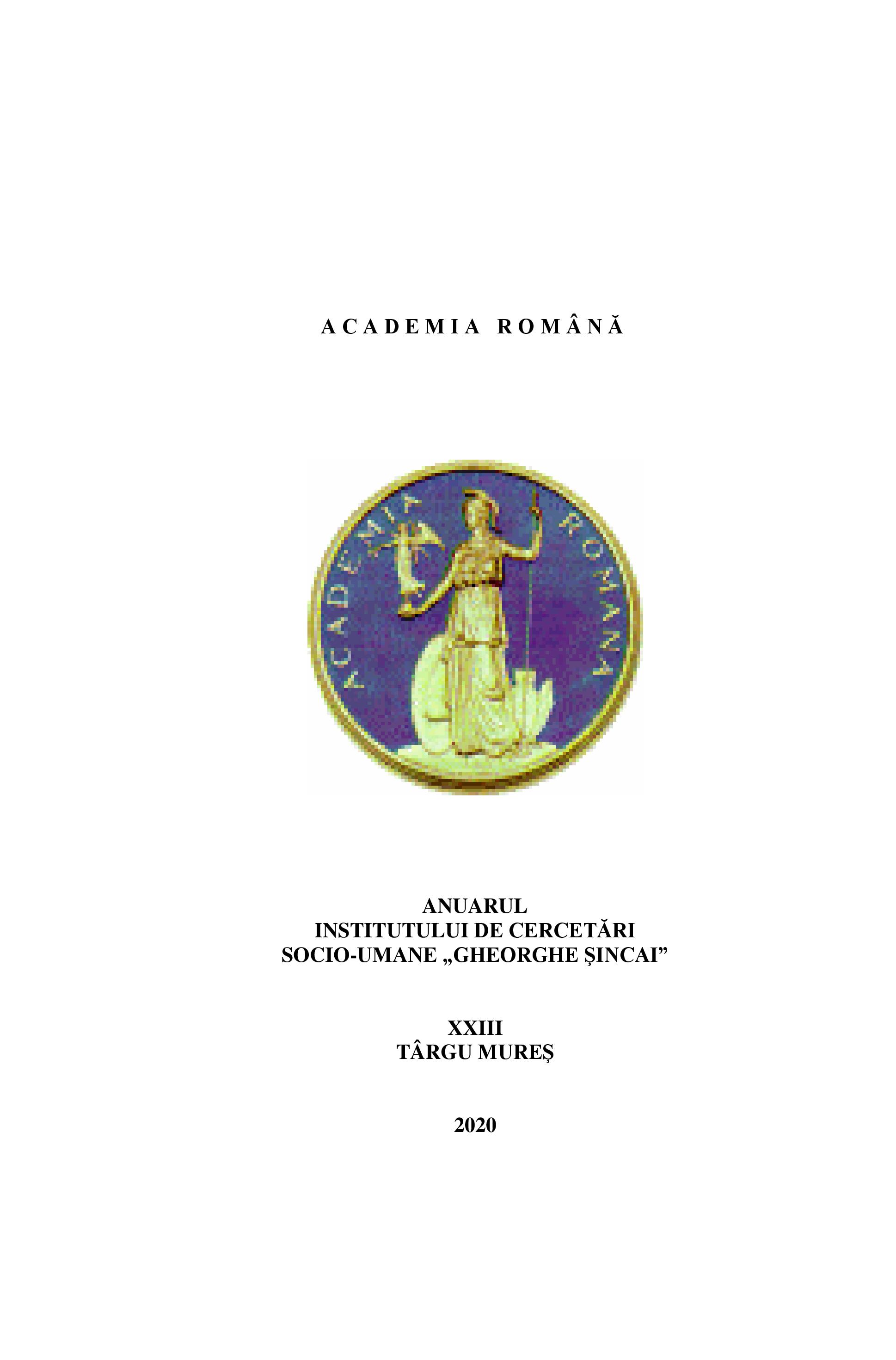BISERICA EVANGHELICĂ DIN ROMÂNIA ȘI AGENDA GERMANITĂȚII DIN STRĂINĂTATE. O RELECTURĂ A REVISTEI CULTURALE „OSTLAND” ( I )
The Lutheran Church in Great Romania and the Agenda of Auslandsdeutschum. Rereading the Cultural Monthly Review Ostland.
Author(s): Marian ZăloagăSubject(s): History, Cultural history, Local History / Microhistory, Interwar Period (1920 - 1939)
Published by: Institutul de Cercetări Socio-Umane Gheorghe Şincai al Academiei Române
Keywords: “Ostland”; the Lutheran Church; interwar Romania; Auslandsdeutschum; Ostforschung; cultural pangermanism;
Summary/Abstract: The cultural periodicals represents a privileged ground whose investigation can reveal how a community of reading could contribute to the building of the imaginary modern national and pan-national discourses. My study looks at the monthly cultural journal “Ostland”, edited at Sibiu/Hermannstadt, the spiritual and political capital of the Germans in Great Romania. Departing from a previous rich body of literature, I suggest this journal must be approached for what it declared to have been and, therefore, be re-read in the context of the politically engaged Ostforschung and its subfield Deutschkunde. Programmatically, the journal came out already in 1919 as an attempt to support the reciprocal understanding of the German communities in the Great Romania. After a caesura in apparition, due to financial issues, it was republished starting with 1926. The new series outlined a re-dimensioned and reconfigured focus on Auslandsdeutschtum. In both periods of the publication, it expressed the Transylvanian Saxons’ conservative elites, many of them Lutheran clergymen, standpoint on this matter. In the present research I show how by means of the essays written by ecclesiastical personalities on the topic, they strived to keep close to the Transylvanian Saxons’ tradition in approaching the cultural pan – German agenda. I also highlight that this engagement with the topic, and the manner in which it was promoted by the Lutheran clerics and their secular collaborators from Great Romania, from the kinstate and/or from other German Siedlungsgebieten, was meant to function as a valve to deflate internal tensions and contestation movements. By reorienting the attention to a common goal, members of the German minorities from Great Romania and other eastern European states were encouraged to understand their belongingness to the Volksgemeinschaft as a noble mission to promote the German Kultur in the east. Undoubtedly, they sought to gain support from the kin-state where the interest in the Auslandsdeutschen was undeniably developing as a result of the Great War experience and its outcomes. However, as my paper shows the approach to this agenda had to be dealt with pragmatically and be negotiated according to a previous tradition developed by the Transylvanian Saxon bishops’ family Teutsch. The accent put on adaptation of the discourses of Auslandsdeutschtum and of the cultural pan - Germanism in accordance to the historical and ethno-cultural local traditions was a strategy meant to serve various objectives. Through their prudent approach, Lutheran clerics and their secular collaborators had in view to preserve of the Transylvanian Saxon hegemony in the German minority in Great Romania, even to promote their model among various other German groups in the eastern Europe, and, finally, to answer back to the völkisch discourses visited by secular elites belonging to the generation of the war which progressively intended to devalue churchmen’s role in the political representation of the Germans in Romania. Last but not least, by re-reading “Ostland”, which ended its publication in 1931, a year before the retirement of the Bishop Frierdich Teutsch – himself a long time and judicious promoter of the Auslandsdeutschum’ s agenda-, I could show that by not blindly jumping into the arms of the radical pan-German promoters, ecclesiastical Lutheran leaders from Romania, who occupied seats in the Romanian Parliament and governmental departments, succeeded to avoid conflicts with the Romanian authorities which were very sensitive to the matter of the loyalties manifested by the minority groups.
Journal: Anuarul Institutului de Cercetări Socio-Umane »Gheorghe Şincai« al Academiei Române
- Issue Year: 2020
- Issue No: 23
- Page Range: 5-54
- Page Count: 50
- Language: Romanian

